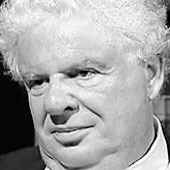The Unfashionably Successful Mr. Putin
Why might Vladimir Putin prove to be a prescient and well-prepared guide for his nation?
March 1, 2012
American intellectuals, whether liberal or neoconservative, have never liked or respected Russia’s Prime Minister and former president Vladimir Putin. His no-nonsense authoritarian style is anathema to them. Putin, for his part, remains manifestly unimpressed by the potential of iPhones, social networks and the other miracles which those modern Merlins, Steve Jobs and Mark Zuckerberg, offer up in order to bring Peace on Earth and Goodwill to Men.
In the past decade, under Putin’s leadership as president and hands-on control of the bureaucratic system as prime minister, Russia has rebuilt its strength and credibility as an integrated, coherent power state. Following the disintegration of the Soviet Union and the social and economic disintegration of the desperate decade of the 1990s, when Boris Yeltsin boozed clownishly in the Kremlin, that is no mean feat.
Under Putin, Russia became the world’s largest oil and natural gas producing and exporting power. It changed its strategic orientation decisively from West to East on June 15, 2001, when it co-founded the Shanghai Cooperation Organization, along with China and four of the five former Soviet republics in Central Asia — Kazakhstan, Uzbekistan, Kyrgyzstan and Tajikistan.
Putin, despite vastly diminished resources compared with the Soviet era, has managed to rebuild the formidable Soviet/Russian strategic nuclear forces. They are now by far the most formidable, best maintained and most modernized nuclear strike force on the planet.
The United States is believed to have more nuclear weapons than Russia (Russia keeps its number of nuclear weapons a closely-guarded state secret), but the United States has not invested heavily in the maintenance and the modernization of their delivery systems as Russia has over the past decade.
Yet it is the unanimous consensus of America’s so-called military experts that Russia’s conventional armed forces are ineffectual, if not a joke. But those same forces took the United States and its allies totally by surprise in August 2008, when they conquered one-third of the mountainous, supposedly-easy-to-defend former Soviet republic of Georgia in the Caucasus in a mere 48 hours.
Putin has consistently shown an impressive ability to concentrate on his available resources and achieve much with limited means. By contrast, American Presidents George W. Bush and Barack Obama were bizarrely united in their determination to dissipate the power of the United States and exhaust the manpower and infrastructure of the U.S. Army and Marines in almost endless nation-building wars in Afghanistan and Iraq. Putin, perhaps all the wiser from the Soviet experience in Afghanistan from 1979 to 1989, has not repeated their mistake. But he must have wondered why his U.S. counterparts did.
Writing in the London Daily Mail in 2008, the eminent British historian Lord Correlli Barnett praised Putin as an ultrarealist national leader who pursued his country’s national interests in a coherent, determined and undeviating manner.
This view found no traction in the United States. Over the past year especially, the popular protests and toppling of governments across the Middle East in the so-called Arab Spring have revived the optimistic hope — never far from American intellectual hearts, whether liberal or neoconservative — that the same could happen in Russia. It is most vividly expressed in Francis Fukuyama’s End of History, his vision of the universal triumph of liberal democracy, free markets and universal free trade.
Russia’s soft and hard power
The popular anti-government protests in Russia and the relatively disappointing showing of Putin’s United Russia Party in recent parliamentary elections are boosting the hopes of American pundits that Putin may be squeezed out of power. They still dream that a kinder, gentler leader — perhaps current President Dmitri Medvedev, “freed” of the shadow of his more powerful and intimidating partner — may take his place.
Putin’s Russia is certainly not an attractive model for the United States to take seriously or for the prosperous democratic nations of the European Union to emulate. But it has survived, it is getting stronger and it has vast energy resources, which it is developing energetically and effectively.
At the same time, as I document in my upcoming book That Still Should Be Us, there are now seven billion human beings who ultimately compete through a range of disparately organized political structures for the scarce resources of this finite planet in order to survive and prosper. Considering that more than half of those seven billion people still live in some kind of authoritarian political structure or, far worse, in states of anarchy and chaos, whether in collapsed states or in the poverty-stricken rural villages and urban slums in supposedly better structured countries, Russia may have its very own appeal to people around the globe.
There is, therefore, plenty of despair from hundreds of millions of people to generate support for authoritarian regimes. And, in that particular context, while it may insult our Western preferences, Russia may not look so bad to those still living in utter despair.
Russia remains the supreme military power across the entire Eurasian landmass. In an increasingly chaotic world, driven by an ever more acute competition over resources, that real military power may well end up counting for a lot. And in navigating the dangers of such a world, Vladimir Putin may prove to be a remarkably prescient and well-prepared guide for his nation, ensuring that he might indeed have the last laugh.
Takeaways
Putin has consistently shown an impressive ability to concentrate on his available resources and achieve much with limited means.
Putin's Russia is certainly not an attractive model for the United States to take seriously or for the prosperous democratic nations of the EU to emulate.
In a world driven by an ever more acute competition over resources, Putin may prove to be a remarkably prescient and well-prepared guide for his nation.
